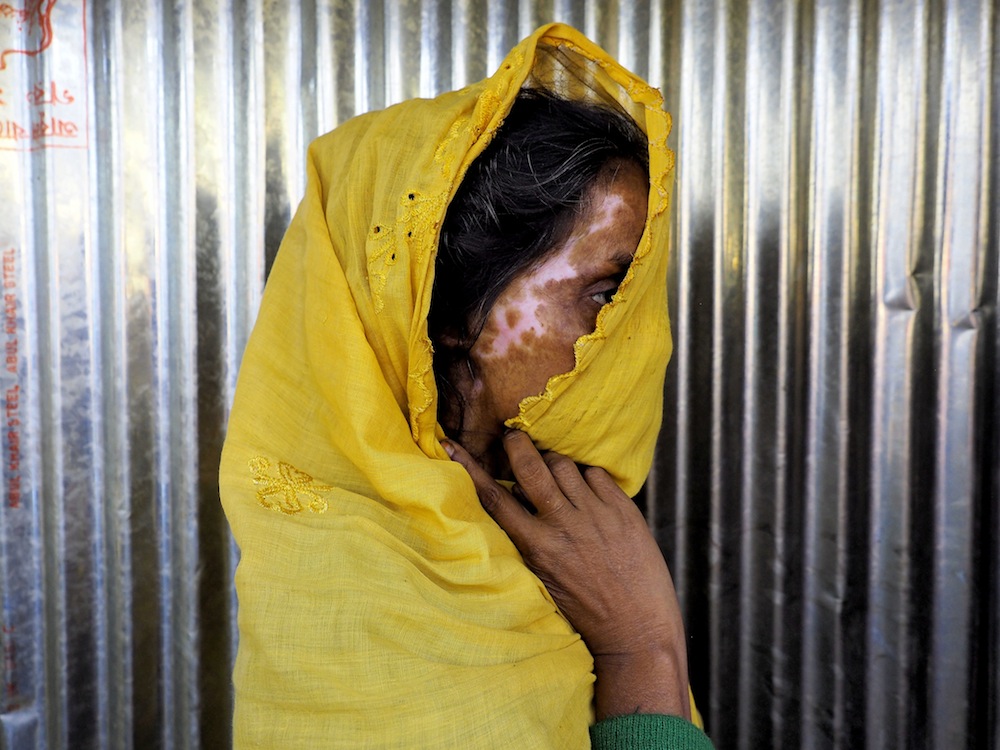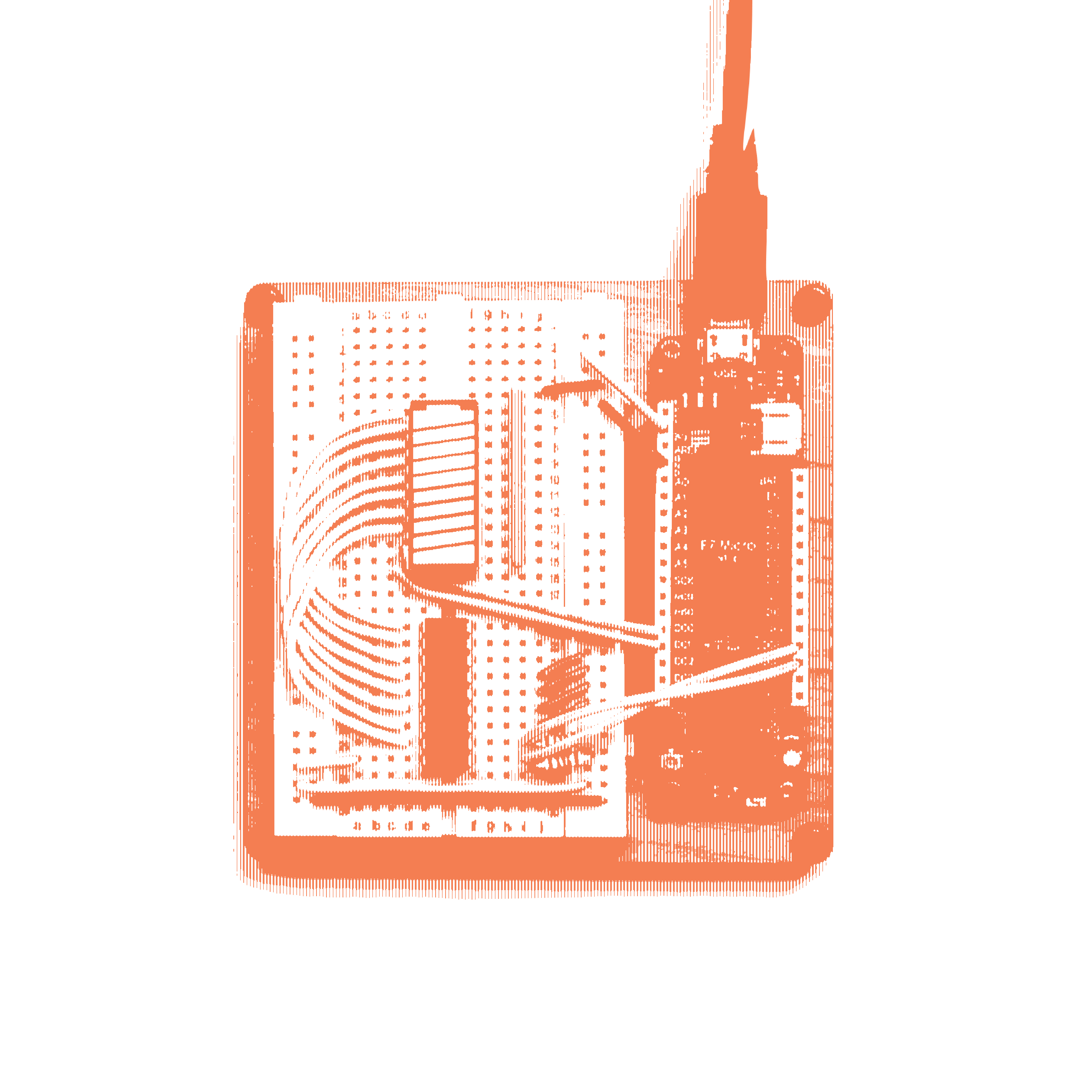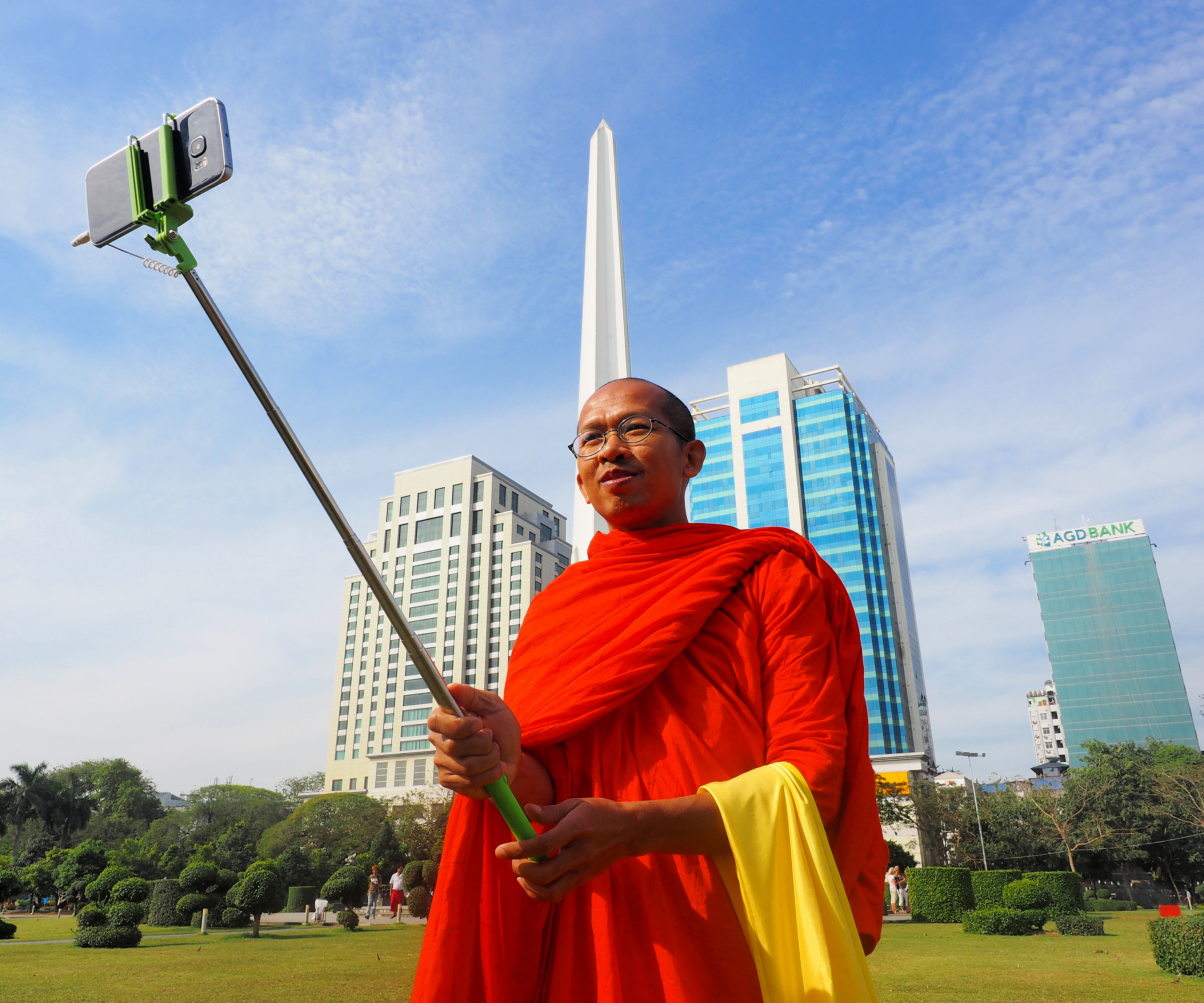
During the half century that they ruled the country, Myanmar’s military dictators occasionally turned to astrology for policy decisions. In the late ’80s, for example, the government switched the currency from units of 10 to nine, a more auspicious number. Economic turmoil followed. More recently, after an astrologer reportedly warned of an imminent American air strike, the capital was relocated from Yangon to a half-finished outpost in the middle of a jungle. Mass confusion ensued. Because of the dictatorship’s rigid controls on everything from media to education, hardly anyone had a mobile phone, and internet access was severely limited. People had little idea what was happening in the next town—let alone at the capital (wherever it was).
Myanmar’s citizens have, over the years, expressed their frustrations through a number of attempts at peaceful revolution, which the military leaders generally quashed with tanks and bayonets. But six years ago the government realized that modernity was allowing once-poorer neighboring countries to surge ahead, so it began to democratize. Aung San Suu Kyi, a founder of the National League for Democracy, was freed from house arrest in 2010. And in 2014, officials granted licenses to two foreign cell phone companies. Within a year, the price of a SIM card dropped from $250 to $1.50, leading to the fastest rise in mobile phone usage of any country in the last 10 years. Today more than three-quarters of the population have a cell phone, most of them smartphones.
As I was traveling through Myanmar’s remote northern mountains early this year, I saw a boy sitting on an elephant’s head, steering with his feet while his hands swiped his phone. According to a man who was loading rice onto the elephant, the boy was heading to a rebel battalion in the jungle to help defend an illegal mine. Would he be able to call his parents back home? Sure, the guy told me. They even had coverage out there.
Farmers in oxcarts, Buddhist monks, businesspeople launching startups—they all now have the world at their thumbs. But what is it like to endure, in just a few short years, the transition Western countries have had a quarter century to work through? Tech is powerful anywhere, but it’s particularly powerful when it’s brand-new and easy to exploit. In the stories that follow, six people share their experiences from the forefront of Myanmar’s mobile revolution. Each account offers a glimpse of the boon of sudden connectivity—along with the wide-ranging, and sometimes violent, consequences of disruption.
Thaung Tin (opening image)
Age: 57
An early PC user who led Myanmar’s telecommunications reform
I was born in 1960 and grew up under socialism, which meant that all people were equal together at the bottom. We had nothing: no TV, no exposure to the outside world. I learned from a government school, but there was a library, and I taught myself with books. Even when I went to engineering university in 1980, a telephone was a luxury item. You had to dress up to use it at the post office, and connections were very poor. That was the same year the government brought in TV. At the university hostel, everyone watched the few hours of government programming each day. I saw the development in other nations. I loved the Six Million Dollar Man and James Bond for all their technology. I eventually became the maintenance engineer for the only computer in the country. Then, when an IBM personal computer was given to the university, I was chosen to help assemble it. That made me one of the first people to use a personal computer in Myanmar. It was like a James Bond movie.
Around 2000, because of my expertise, I started representing Myanmar at the Association of Southeast Asian Nations on technological matters. As I traveled, I saw that neighboring countries were surpassing us. Once, in Cambodia, when I spotted a taxi driver with a cell phone, I thought, “A taxi driver isn’t supposed to have that!” I was also one of the first people in Myanmar to get the internet, and I realized that with just a few clicks, a kid from here could have the same access as one in Silicon Valley. In 2012 I joined the president’s advisory council. He had just begun accepting reforms, so in one meeting I nervously suggested: “Mr. President, we should consider telecom reform, because that could have a high impact on society.” I was shocked when he appointed me deputy communications minister.
Because Myanmar had been a military regime for many decades, there was a lot of resistance to bringing in foreign telecom companies. It was a big deal for the government to be unable to track conversations. There was also pushback from the private sector—I’m sorry to say that corruption is a big problem here. They tried to co-opt me, but this was a national service. We ran a very open auction among over 30 foreign companies for the telecom licenses. Our selection process favored companies that showed a strong commitment to creating systems like mobile payments. Less than 10 percent of Myanmar’s people have a bank account, so being able to transfer money electronically can make a difference.
Smartphones are a magic device that will transform everything—from communication to education, from agriculture to politics. I have one daughter, who’s 12. She’s already learning to code. If I say something, she doesn’t necessarily believe me—she just looks it up on YouTube. This is the new normal. Everyone thinks that the telecom revolution in Myanmar is finished, but really, it’s just beginning.

Honey Mya Win
Age: 26
Cofounder of freelancing platform Chate Sat
My father encouraged me to become a computer engineer, even though there are very few women in technology, because he heard about the coming tech boom from friends in Singapore. He paid for me and my sister to attend computer classes after school. At first I didn’t enjoy it. I had to carry my whole computer around—not a laptop, but the CPU and monitor—and because I was small I could barely lift it. But eventually I earned my degree in computer networking.
I thought I was going to have to leave Myanmar to work. Instead the country opened up. Mobile technology came to me. I joined Huawei, the telecom company, as an engineer and became the project lead to improve the internet speed at 200 mobile towers. I was proud to help establish the internet in Myanmar. But even I didn’t expect it to take off so fast. Soon even my grandmother was using Facebook.
As an engineer, there were some limits that I couldn’t cross. I couldn’t get a license to climb the towers, and my boss just wanted me to stay in the office and control them remotely. Many of the operations were done at midnight because that’s when the network has the least traffic. Even though I was the lead and wrote every script, I had to give them to a guy to run for me. My parents felt it wasn’t safe for a woman to be out at night. Around that time, my sister and I participated in a hackathon. It was difficult because we didn’t know the slang, but we ended up winning. After that I knew I wanted to keep doing it.
In 2016 we joined the Phandeeyar Accelerator program to make Myanmar’s first active freelancing platform, which would allow everyone who wants to earn extra cash in their free time to find work. We thought it would be easy, but soon we were crying like babies. We were working every day, even weekends. Our website had traffic until midnight, so we had to stay up late to run operations. But at least in the startup world, I could spend the whole night at the office working. When we watched HBO’s Silicon Valley, it felt like we were seeing our story on TV.
It’s hard for people from Myanmar to join an American-style boot camp. Our way of learning is not the same. But it’s been worth it. The tech way of thinking has allowed us to execute our ideas better and more quickly. Now we have over 4,600 freelancers and 790 businesses on our site, and we’re expecting to be profitable soon. Before starting our company, my sister and I fought a lot, but since then we haven’t had time. When we’re pitching a project, we even complete each other’s sentences. We know everything just by looking at the other’s face. We’re sure the internet will transform this country—though there are side effects. Our family used to spend the evenings together, but now even if we go out to dinner, we just end up on the internet.
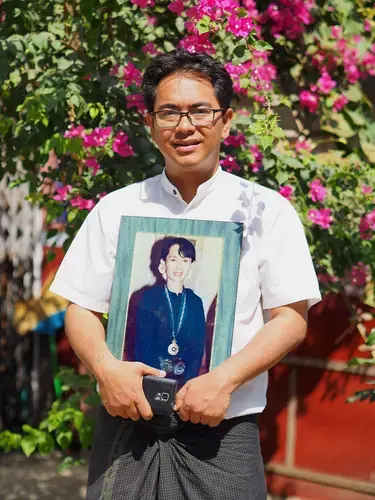
Nay Phone Latt
Age: 37
Pen name of Nay Myo Kyaw, one of Myanmar’s first political bloggers and a member of Yangon’s regional parliament
I come from a political family; I marched in the 1988 and 1997 uprisings. Those failed, of course, but I believed democracy would come. When I moved to Singapore in 2005, my friends introduced me to blogging. I realized how powerful it could be for spreading the pro-democracy message. By the time I moved back home in 2007, the government had licensed a few internet cafés. I pooled money with friends to open one. Normally the authorities kept tight control—café owners had to hand over screenshots of what every user did. But I took my cafés underground. People could access Gmail, news websites, and other banned things. A lot of political activists were interested, so I organized the Myanmar Blogger Society.
One day in September 2007, I saw hundreds of monks marching and shouting in the rain. I felt like, “Finally, we’re going to get democracy.” But then the police began rounding up all the monks and arresting them. Everyone was afraid, but the other bloggers and I knew we had to get the story out. We used digital cameras to record injustices. It became one of the few ways to get information out of Myanmar. The internet made the revolution more possible because protesters could coordinate and inform the world. But eventually the authorities shut off the internet for the country. Then they came and arrested me.
I was sentenced to 20 years and six months in a remote prison. I swore to always find a way to speak out—I argued with the guards until I could write to whomever I wanted. If you lose your voice, you become invisible, and then the government can do whatever they want with you. Suddenly, after four years, I was released, and in 2015 I became a candidate for Aung San Suu Kyi’s political party. Mobile technology transformed the election, informing voters and helping the media make things more transparent. And if something went wrong at the voting stations, people could let me know, because everyone had a cell phone.
Now that we’re free, there are so many things to do for the people. Most rural people have never experienced anything like technology before, so they don’t know about digital security. A group of extremist monks is using social media to drive violence against Muslim minorities with hate speech, and many Muslim villages have been burned. So I’ve traveled around the country to provide training on how to use tech responsibly. While it can empower democracy, it can also have bad effects. Myanmar still needs to learn how to use it.

U Ohn Maung
Age: 56
A tea and ginger farmer in the Shan state
My father and my grandfather were tea leaf farmers. We’d pick fresh tea leaves very early in the morning and work until dark—and then we had to boil, knead, and pickle the leaves. Today I still cultivate the same land they did and have 5,700 bushes. It’s our family business but also our tradition.
I have always lived in the same town with about 900 people, which is in a very beautiful forest but also very isolated. When I was a child, we lived in wooden houses and used candles at night, and the mountain footpaths were too small even for oxcarts. For a long time, life didn’t change. But around 2012 we got 24/7 electricity. In 2014 a cell phone tower was built on the mountain ridge nearby. And last year a local NGO visited and demonstrated the Golden Paddy app. I was excited. Before that I had used my phone only for calling and Facebook. But now I could get information about the weather, market prices, and pesticides. Being able to know the weather in advance is amazing—before, I just had to watch the clouds! And the market information is very important. Before, we would sell our products to the brokers for very low prices, because we had no idea they sold them for higher prices in the city. But in the app I can see what the prices are in the big towns, so I don’t get cheated—especially for ginger and avocados.
The web connection is not good here, so I walk all around looking for a better connection so I can use the app. Sometimes I like to look at prices for crops I don’t even grow, in places I will never go, just because I’m curious. When I meet other farmers, I tell them how useful it is. Still, I wish someone would train me. I’m very hopeful about the future. I just have to learn how to use my phone better.

Mar Mar Aye
Age: 53
A small-business owner outside Yangon
My husband was in the military, so we’ve moved all over Myanmar for his placements. In the old days, whenever we were stationed outside the cities, it was like we fell off the face of the earth; it could take a month for a handwritten letter to reach us. But today’s communication systems are much better.
This is important because my daughter lives in Mandalay while I live outside Yangon. I run a small neighborhood convenience store, and mobile technology has allowed us to make a real business. My daughter buys truckloads of shoe soles and then ships them to me. Then I sell them to the shoe factories nearby. With Wave Money, which is a mobile money service, I can send the cash I get in Yangon back to my daughter in Mandalay, so she can make more shipments. Before mobile phones, it was much harder to arrange this, so we could only do four shipments a month, but now we can do eight or nine. That makes me a lot more profit.
Also, in the past, to pay my son’s boarding school fees I had to go to a long-distance bus terminal and send it through a bus service. Of course, we worried about the money being lost or not reaching my son in time. The banks in Myanmar weren’t a good option because they’re far away and take a lot of time.
Mobile technology has changed my life in so many other ways too. When I got my first phone five or six years ago, suddenly I could hear my daughter’s or son’s voice first thing in the morning, which is something I always wished I could do. It’s as if I’ve suddenly become a lot closer to my family again. I usually talk with my daughter twice a day. I just got off the phone with her and my grandchildren! And since my son has become a soldier and is now on the front lines, it reassures me to hear his voice.
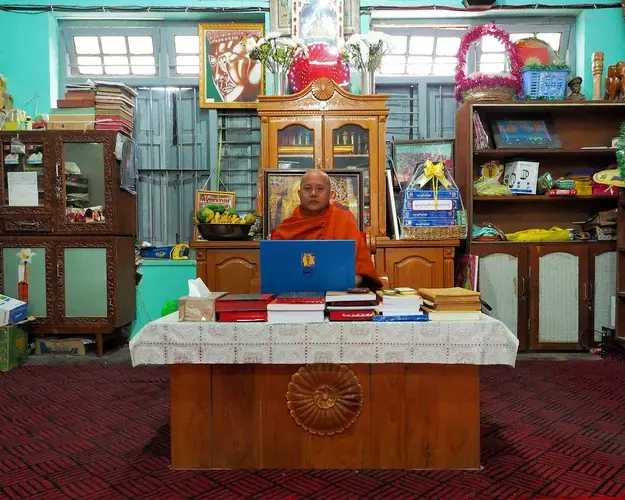
Ashin Wirathu
Age: 49
The most influential demagogue in a group of extremist monks that aims to expel Myanmar’s Muslim minority from the country
After eighth grade I was briefly ordained as a novice monk—as all boys are. I remained a monk because of how great it was. I started preaching in 2001 after I began to sense the danger of Islamization in our country. During that time, there were news blackouts and censorship. Town criers would walk the streets with a horn, yelling to announce my sermons. I was never allowed to speak on the radio, because the government deemed me controversial. Eventually they imprisoned me for almost a decade.
I was freed on January 13, 2012, a date I will always remember. A few days later, one of my followers showed me how to use a Nokia mobile phone and a computer. Immediately I saw that, with those tools, the world had become small, and I could connect with anyone, from other monks to laypeople. I started using Facebook to talk about trends I noticed. Later, during the conflicts with Muslims, I began posting news. Social media is much better than using town criers. If I give a sermon, even people who cannot attend it can hear my message. Now I have thousands of followers. I write news items by hand, and then my disciples transcribe my drafts and post them for me. It’s become so much work that I need other monks and laypeople to help me write and post articles. They work in shifts, morning and afternoon.
My strategy resembles Donald Trump’s: I want to reach the people directly. The US may have a good standard of living but no security against Islam. Only Donald Trump can protect you. People say that I fan the flames of hate, but when there is a fire, it’s natural for people to get frightened. Only after the fire has been extinguished will people turn to thank me. Look! See this picture? [He holds out his phone, displaying a graphic photo of a corpse.] This is an example of what Muslims do. I lost some sleep over it last night. They tell me a Muslim family killed a Burmese man. Now, excuse me, I have to go post about this.


